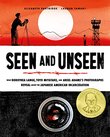
by James McBride ‧ RELEASE DATE: March 3, 2020
An exuberant comic opera set to the music of life.
Awards & Accolades
Our Verdict

GET IT
Kirkus Reviews'
Best Books Of 2020
Kirkus Prize
finalist
New York Times Bestseller
IndieBound Bestseller
The versatile and accomplished McBride (Five Carat Soul, 2017, etc.) returns with a dark urban farce crowded with misjudged signals, crippling sorrows, and unexpected epiphanies.
It's September 1969, just after Apollo 11 and Woodstock. In a season of such events, it’s just as improbable that in front of 16 witnesses occupying the crowded plaza of a Brooklyn housing project one afternoon, a hobbling, dyspeptic, and boozy old church deacon named Cuffy Jasper "Sportcoat" Lambkin should pull out a .45-caliber Luger pistol and shoot off an ear belonging to the neighborhood’s most dangerous drug dealer. The 19-year-old victim’s name is Deems Clemens, and Sportcoat had coached him to be “the best baseball player the projects had ever seen” before he became “a poison-selling murderous meathead.” Everybody in the project presumes that Sportcoat is now destined to violently join his late wife, Hettie, in the great beyond. But all kinds of seemingly disconnected people keep getting in destiny's way, whether it’s Sportcoat’s friend Pork Sausage or Potts, a world-weary but scrupulous White policeman who’s hoping to find Sportcoat fast enough to protect him from not only Deems’ vengeance, but the malevolent designs of neighborhood kingpin Butch Moon. All their destines are somehow intertwined with those of Thomas “The Elephant” Elefante, a powerful but lonely Mafia don who’s got one eye trained on the chaos set off by the shooting and another on a mysterious quest set in motion by a stranger from his crime-boss father’s past. There are also an assortment of salsa musicians, a gentle Nation of Islam convert named Soup, and even a tribe of voracious red ants that somehow immigrated to the neighborhood from Colombia and hung around for generations, all of which seems like too much stuff for any one book to handle. But as he's already shown in The Good Lord Bird (2013), McBride has a flair for fashioning comedy whose buoyant outrageousness barely conceals both a steely command of big and small narrative elements and a river-deep supply of humane intelligence.
An exuberant comic opera set to the music of life.Pub Date: March 3, 2020
ISBN: 978-0-7352-1672-3
Page Count: 384
Publisher: Riverhead
Review Posted Online: Dec. 8, 2019
Kirkus Reviews Issue: Jan. 1, 2020
Share your opinion of this book
More by James McBride
BOOK REVIEW
BOOK REVIEW
BOOK REVIEW
More About This Book
SEEN & HEARD
SEEN & HEARD

by Kristin Hannah ‧ RELEASE DATE: Feb. 3, 2015
Still, a respectful and absorbing page-turner.
Hannah’s new novel is an homage to the extraordinary courage and endurance of Frenchwomen during World War II.
In 1995, an elderly unnamed widow is moving into an Oregon nursing home on the urging of her controlling son, Julien, a surgeon. This trajectory is interrupted when she receives an invitation to return to France to attend a ceremony honoring passeurs: people who aided the escape of others during the war. Cut to spring, 1940: Viann has said goodbye to husband Antoine, who's off to hold the Maginot line against invading Germans. She returns to tending her small farm, Le Jardin, in the Loire Valley, teaching at the local school and coping with daughter Sophie’s adolescent rebellion. Soon, that world is upended: The Germans march into Paris and refugees flee south, overrunning Viann’s land. Her long-estranged younger sister, Isabelle, who has been kicked out of multiple convent schools, is sent to Le Jardin by Julien, their father in Paris, a drunken, decidedly unpaternal Great War veteran. As the depredations increase in the occupied zone—food rationing, systematic looting, and the billeting of a German officer, Capt. Beck, at Le Jardin—Isabelle’s outspokenness is a liability. She joins the Resistance, volunteering for dangerous duty: shepherding downed Allied airmen across the Pyrenees to Spain. Code-named the Nightingale, Isabelle will rescue many before she's captured. Meanwhile, Viann’s journey from passive to active resistance is less dramatic but no less wrenching. Hannah vividly demonstrates how the Nazis, through starvation, intimidation and barbarity both casual and calculated, demoralized the French, engineering a community collapse that enabled the deportations and deaths of more than 70,000 Jews. Hannah’s proven storytelling skills are ideally suited to depicting such cataclysmic events, but her tendency to sentimentalize undermines the gravitas of this tale.
Still, a respectful and absorbing page-turner.Pub Date: Feb. 3, 2015
ISBN: 978-0-312-57722-3
Page Count: 448
Publisher: St. Martin's
Review Posted Online: Nov. 19, 2014
Kirkus Reviews Issue: Dec. 1, 2014
Share your opinion of this book
More About This Book
BOOK TO SCREEN
SEEN & HEARD

by Genki Kawamura ; translated by Eric Selland ‧ RELEASE DATE: March 12, 2019
Jonathan Livingston Kitty, it’s not.
A lonely postman learns that he’s about to die—and reflects on life as he bargains with a Hawaiian-shirt–wearing devil.
The 30-year-old first-person narrator in filmmaker/novelist Kawamura’s slim novel is, by his own admission, “boring…a monotone guy,” so unimaginative that, when he learns he has a brain tumor, the bucket list he writes down is dull enough that “even the cat looked disgusted with me.” Luckily—or maybe not—a friendly devil, dubbed Aloha, pops onto the scene, and he’s willing to make a deal: an extra day of life in exchange for being allowed to remove something pleasant from the world. The first thing excised is phones, which goes well enough. (The narrator is pleasantly surprised to find that “people seemed to have no problem finding something to fill up their free time.”) But deals with the devil do have a way of getting complicated. This leads to shallow musings (“Sometimes, when you rewatch a film after not having seen it for a long time, it makes a totally different impression on you than it did the first time you saw it. Of course, the movie hasn’t changed; it’s you who’s changed") written in prose so awkward, it’s possibly satire (“Tears dripped down onto the letter like warm, salty drops of rain”). Even the postman’s beloved cat, who gains the power of speech, ends up being prim and annoying. The narrator ponders feelings about a lost love, his late mother, and his estranged father in a way that some readers might find moving at times. But for many, whatever made this book a bestseller in Japan is going to be lost in translation.
Jonathan Livingston Kitty, it’s not.Pub Date: March 12, 2019
ISBN: 978-1-250-29405-0
Page Count: 176
Publisher: Flatiron Books
Review Posted Online: Feb. 16, 2019
Kirkus Reviews Issue: March 1, 2019
Share your opinion of this book
© Copyright 2025 Kirkus Media LLC. All Rights Reserved.
Hey there, book lover.
We’re glad you found a book that interests you!
We can’t wait for you to join Kirkus!
It’s free and takes less than 10 seconds!
Already have an account? Log in.
OR
Trouble signing in? Retrieve credentials.
Welcome Back!
OR
Trouble signing in? Retrieve credentials.
Don’t fret. We’ll find you.





